
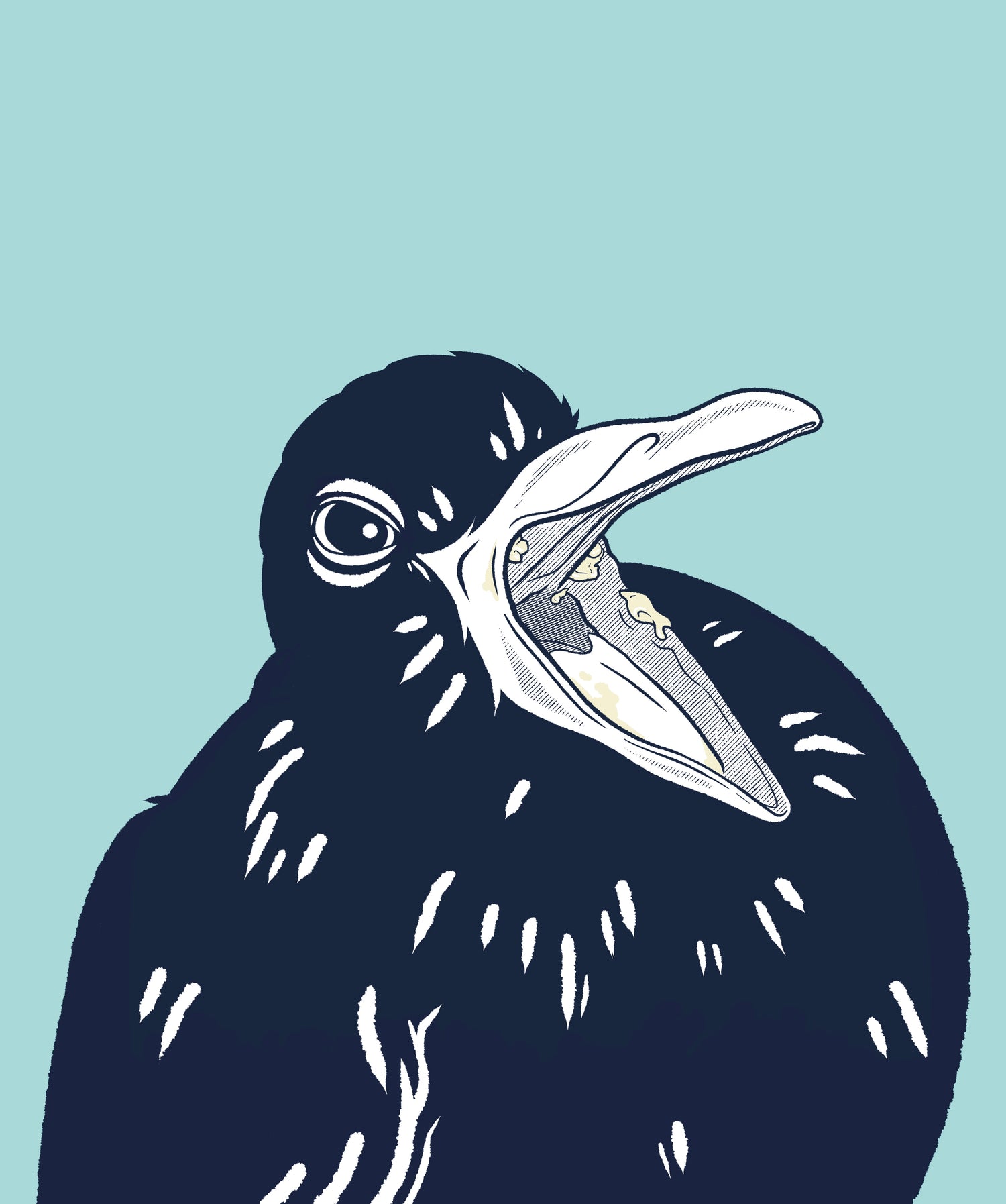
Natural Approaches to Canker Management in Birds
Canker—also known as avian trichomoniasis—is a potentially deadly disease caused by the protozoan Trichomonas gallinae. It primarily affects the upper digestive tract, where it can cause yellow-white, cheese-like lesions in the mouth, throat, or crop. These lesions can obstruct feeding and breathing, especially in young or immunocompromised birds.
Pigeons and doves are the main carriers of T. gallinae, and young birds (particularly squabs) are especially susceptible. Chickens, turkeys, and other poultry can also be infected, particularly in warm, wet, or overcrowded environments.
Conventional treatment typically involves nitroimidazole drugs such as ronidazole, metronidazole, carnidazole, or dimetridazole. While often effective, these medications come with some limitations—such as potential residues in meat and increasing reports of drug-resistant T. gallinae strains. Metronidazole, in particular, is banned in food-producing birds in many countries due to carcinogenicity concerns.
As a result, interest is growing in natural, bird-safe remedies that may help manage canker while avoiding resistance and drug residues. Some plant-based compounds show promising antiprotozoal activity in research settings, and many offer additional health benefits such as immune support or antioxidant effects.
Important Note: These natural approaches are not a cure for canker. They should only be used alongside prescribed veterinary care and never as a substitute for proper diagnosis and medication. Always consult an avian vet before introducing new supplements or remedies.
Ingredients with Promising Research
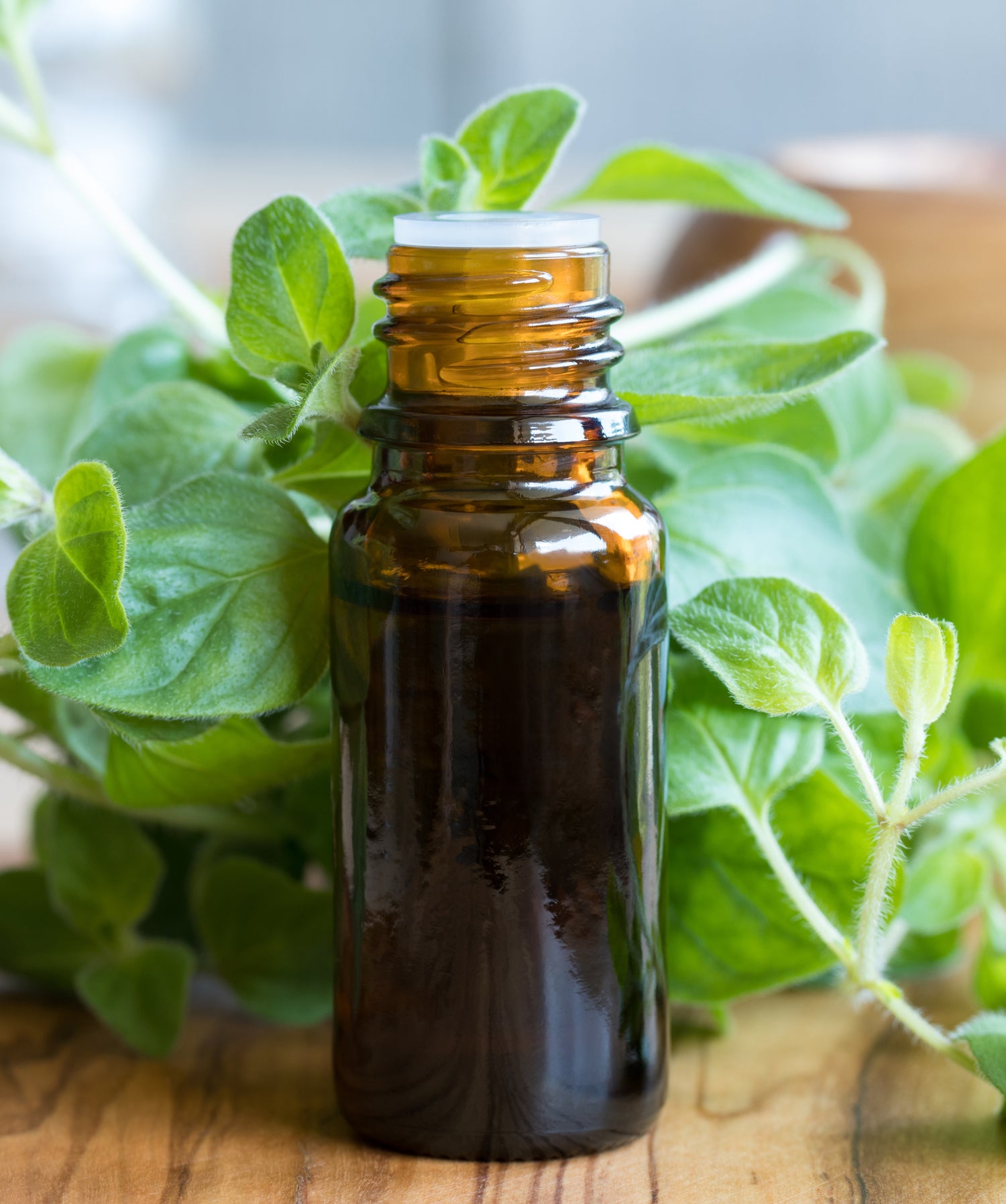
Essential Oils from the Mint Family (Thyme, Oregano, and More) — Use with Extreme Caution
Certain herbs from the mint family (such as oregano, thyme, sage, lavender, and savory) have shown strong anti-Trichomonas gallinae activity in laboratory studies, thanks to compounds like thymol, carvacrol, and linalool. While this research is promising, it’s vital to stress that these are not cures, and essential oils in particular are highly concentrated—making dose and delivery extremely important. Undiluted oils should never be added to food or water, as even a drop can be harmful to birds. If considering herbal support, whole dried herbs (e.g. oregano or thyme mixed into food) are a far safer option. Research is ongoing into how these plant compounds might be used safely to support bird health in the future.
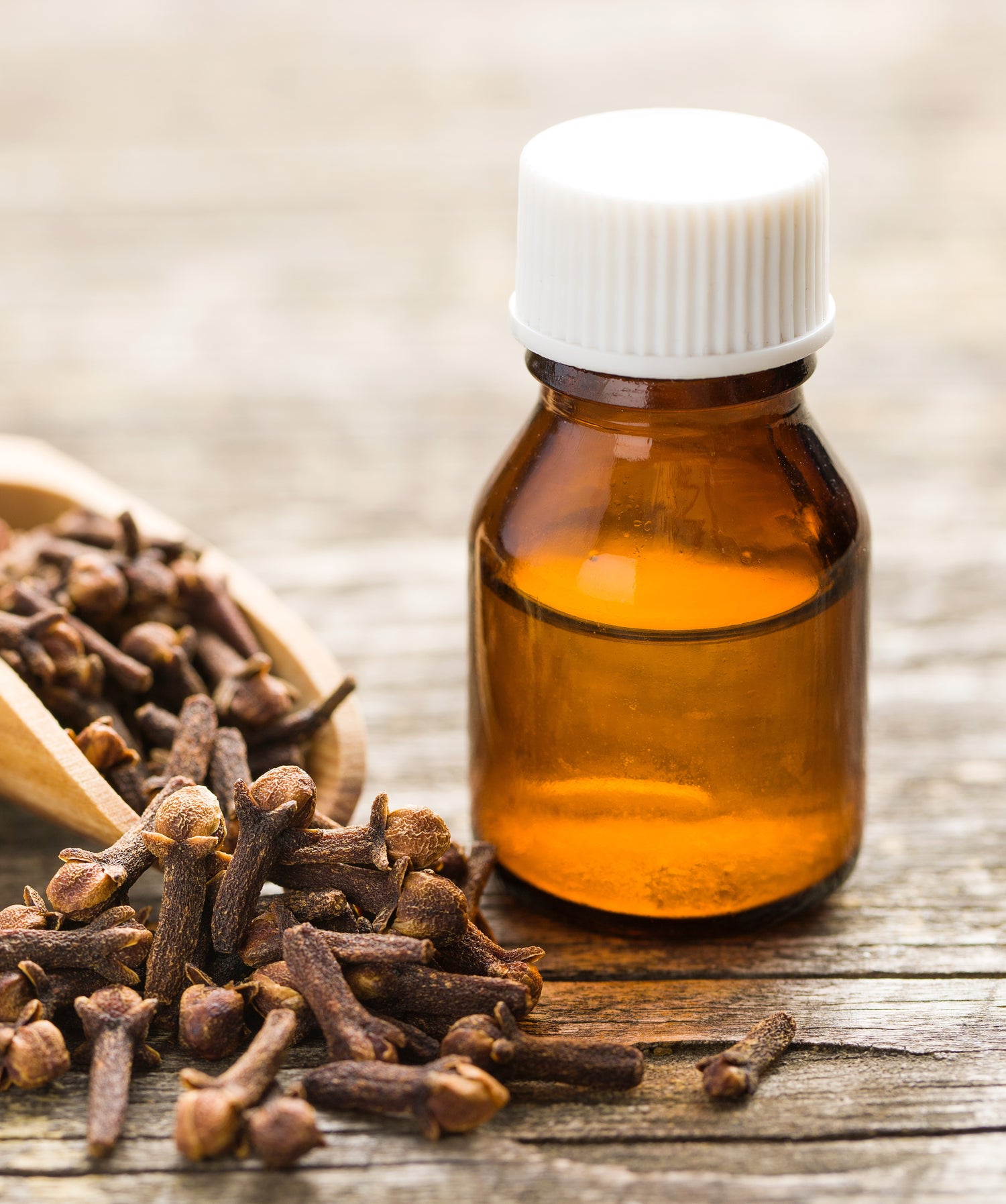
Clove Oil (Eugenol)
Clove oil, derived from Syzygium aromaticum, is rich in eugenol — a natural compound with strong antiprotozoal activity. Research has shown that eugenol at concentrations of 10 µg/mL can kill Trichomonas gallinae (the parasite behind canker) within 48 hours in laboratory tests. In pigeon trials, dosing with 10 mg/kg for five days achieved a 100% recovery rate, comparable to metronidazole. Eugenol acts by damaging the parasite’s cell membranes and disrupting key enzymes, effectively halting its survival. Nano-emulsified forms of eugenol cleared infections even faster, although these are not yet commercially available.
Despite the promising results, it’s vital to remember this is not a cure and that dose is everything. Essential oils are highly concentrated — even a single drop of undiluted clove oil could be toxic to a small bird. Never add oils directly to food or water without professional supervision. If clove oil or eugenol is considered, it should only ever be under the guidance of an avian veterinarian. Used correctly, it may hold potential as a supportive option in cases where resistant strains of canker are present, but misuse can be harmful or fatal.
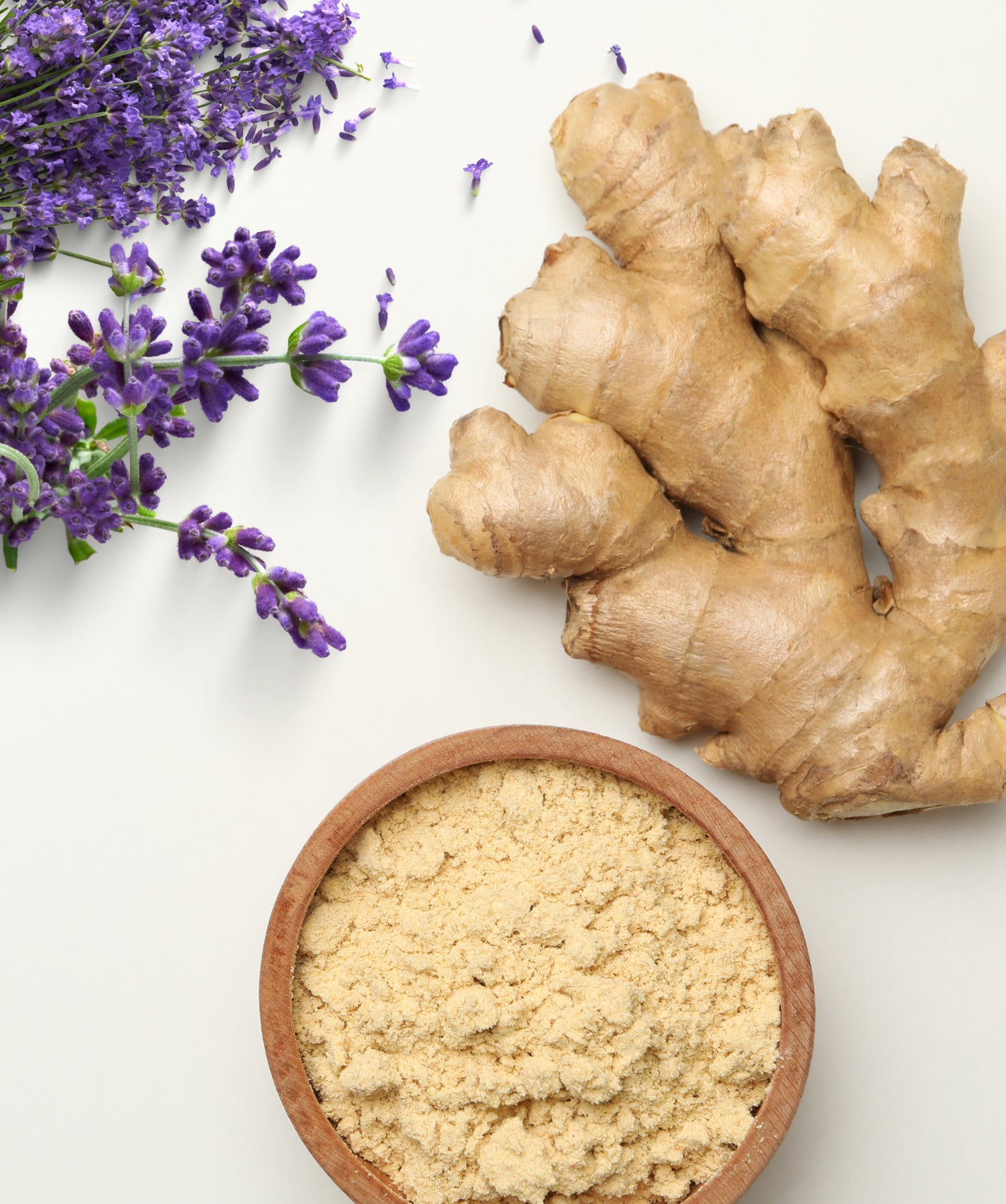
Ginger and Lavender Extracts
Ginger (Zingiber officinale) and lavender (Lavandula angustifolia) aren’t just calming herbs—they also contain compounds with antiparasitic activity. Ginger’s gingerols and zingerone, and lavender’s linalool and polyphenols, are known for antimicrobial and antioxidant effects. A 2021 in vitro study found that ginger extract inhibited Trichomonas gallinae at just 25 µg/mL, while lavender and metronidazole both had an MIC of 50 µg/mL. After 24 hours, all significantly reduced parasite viability, with ginger performing slightly better at lower doses.
These results suggest both herbs could support birds dealing with canker, with ginger disrupting parasite membranes and lavender adding oxidative stress to protozoa while soothing inflammation. In practice, small amounts of dried or prepared ginger and lavender may offer safe support, but concentrated extracts or essential oils must be used cautiously. They are not a cure or replacement for veterinary care but may help reduce reliance on synthetic drugs in resistant cases.
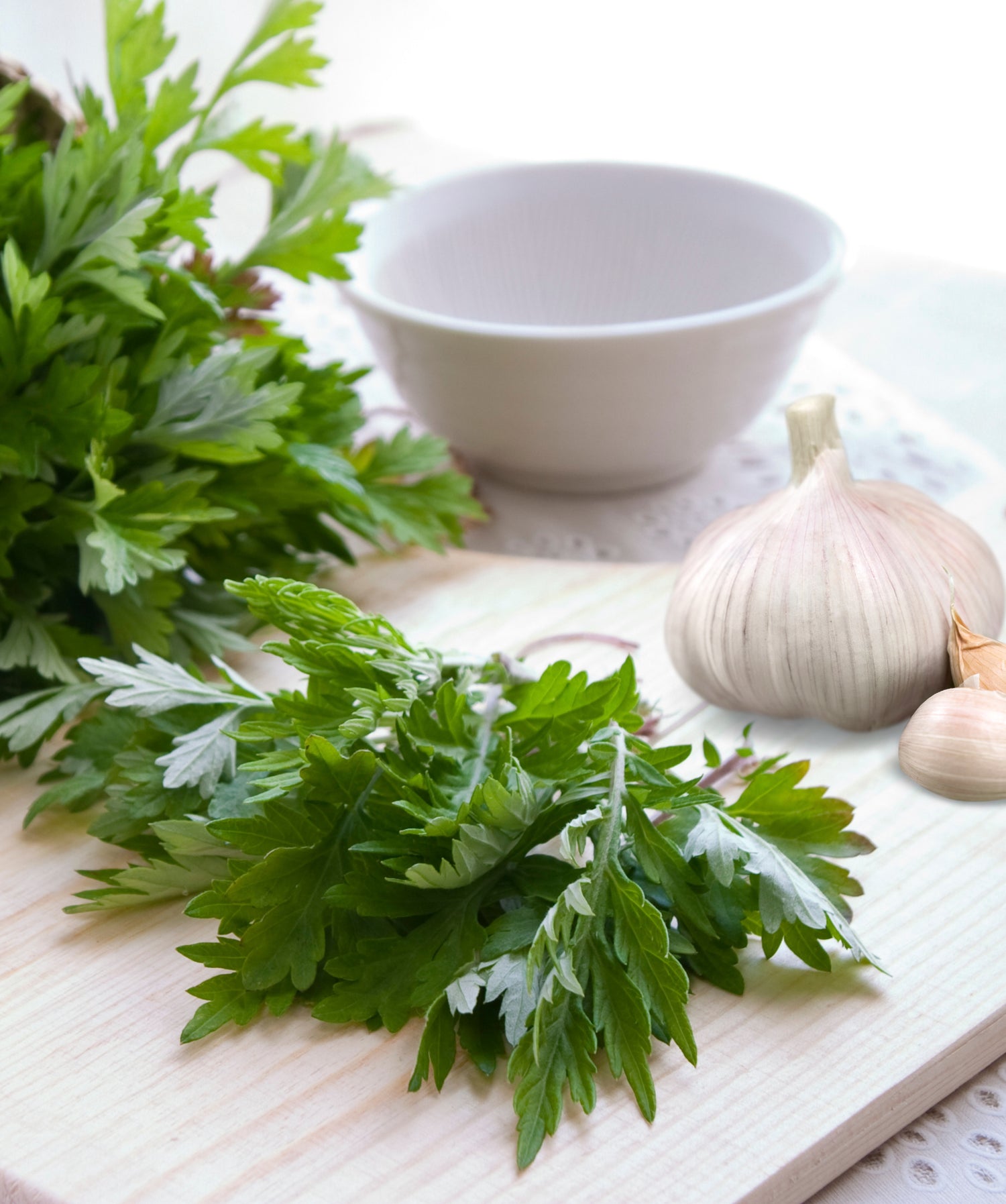
Wormwood and Garlic
Sweet wormwood (Artemisia annua) and garlic (Allium sativum) have both shown promising antiprotozoal effects against Trichomonas gallinae (canker). Wormwood contains sesquiterpene lactones, including artemisinin-like compounds, that disrupt protozoal metabolism and damage the parasite’s internal structures, making it harder for canker organisms to survive and replicate. Lab studies show wormwood extracts can slow parasite growth, and when combined with other herbs, they’ve improved recovery in infected pigeons.
Garlic contributes a different line of attack: its allicin and sulfur compounds damage parasite membranes, disrupt enzymes, and support the immune system. In pigeons, garlic extract has been linked to reduced symptoms, better weight gain, and faster recovery.
Together, wormwood and garlic may act synergistically—wormwood targeting the parasite’s internal systems, garlic weakening and flushing it while strengthening the bird’s natural defences. While not a substitute for prescription treatment in acute cases, they may be helpful in prevention, recovery support, or as part of flock management strategies where access to medication is limited.
Ingredients of Interest
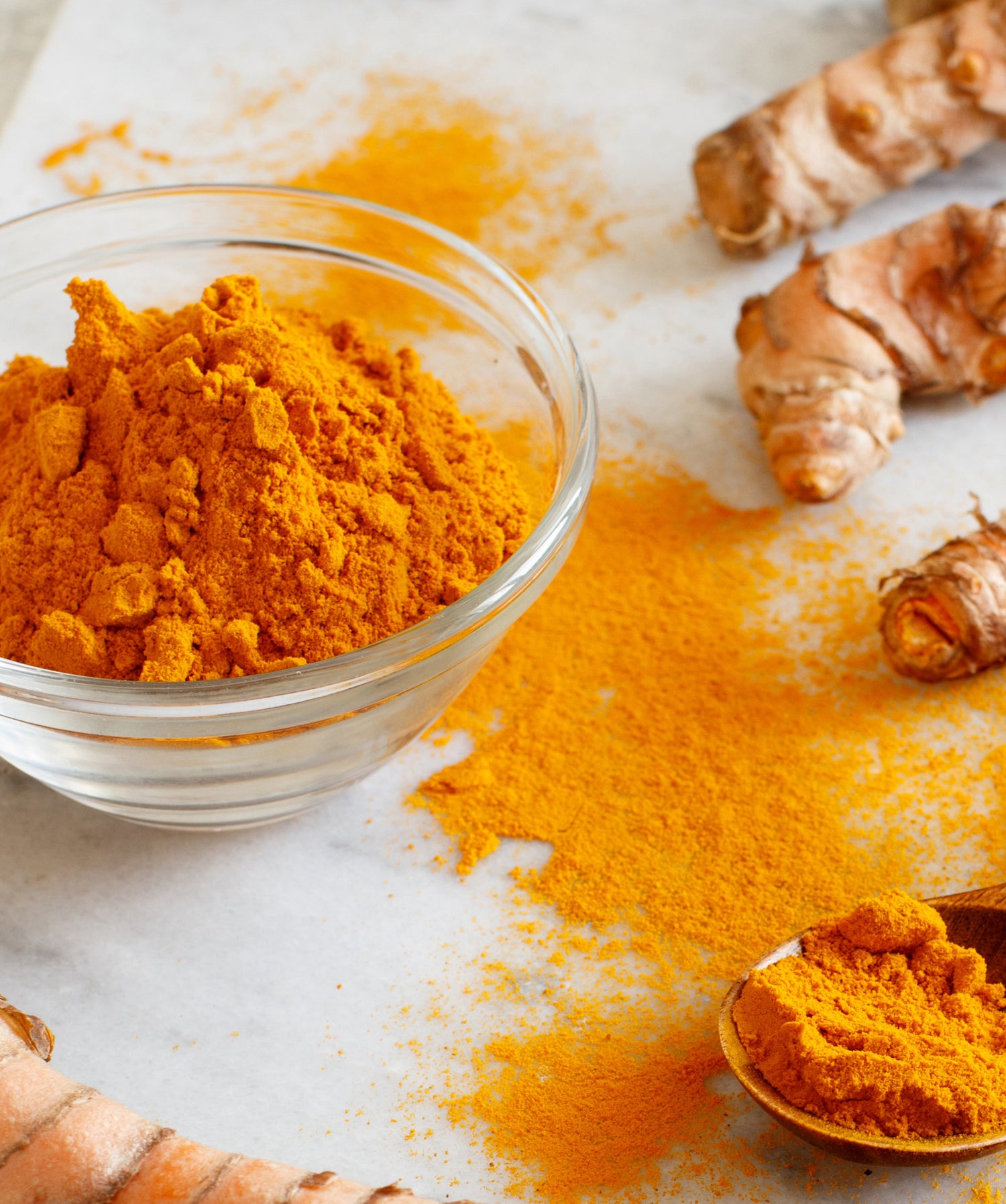
Curcumin (Turmeric)
Curcumin, the bioactive compound found in turmeric, is widely recognised for its strong anti-inflammatory and antioxidant properties. In birds, it helps protect delicate tissues from oxidative stress, supports a balanced immune system, and may ease the impact of infections by reducing harmful inflammation.
One of curcumin’s unique benefits is its ability to influence blood vessel development (angiogenesis). By regulating abnormal blood vessel growth, it may help limit the spread of vascular lesions and reduce tissue damage—important in conditions where parasites or infections disrupt the lining of the mouth, throat, or digestive tract.
Curcumin has also been studied for its ability to slow the activity of certain protozoan parasites, making it a promising natural aid in the management of diseases like canker (trichomoniasis) and coccidiosis. At the same time, it supports gut health by reducing irritation in the intestinal lining, helping birds maintain better digestion and nutrient absorption.
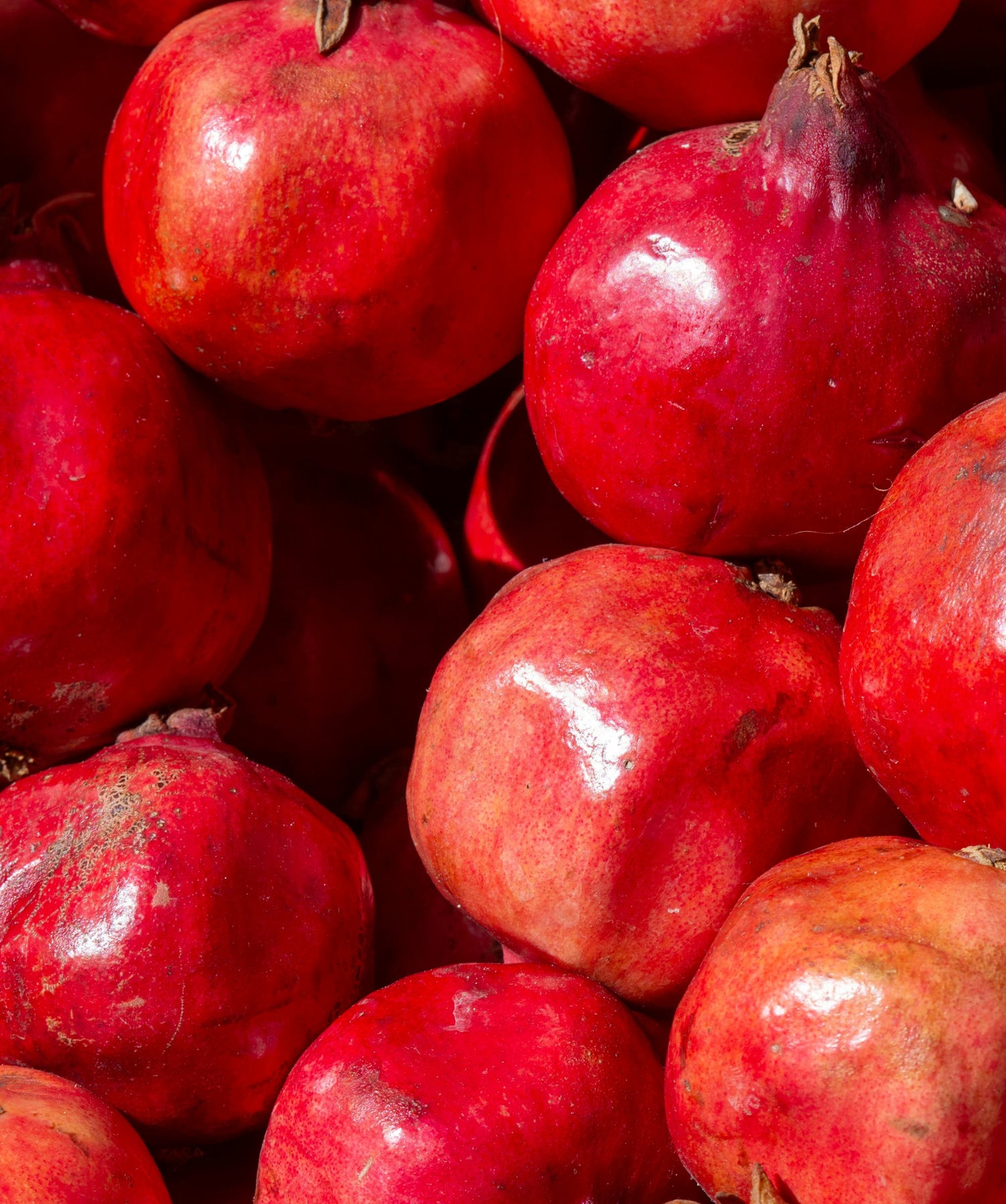
Pomegranate (punicalagins, ellagic acid, and tannins)
While the juicy seeds of the pomegranate are well-known, it’s actually the peel that contains the highest concentration of powerful plant compounds. Rich in punicalagins, ellagic acid, and tannins, the peel provides strong antioxidant, anti-inflammatory, and antimicrobial benefits that far exceed what is found in the juice alone.
For birds, pomegranate peel may help protect delicate tissues from oxidative damage, support immune function, and create an environment less favourable for harmful microbes and parasites. Studies suggest it can inhibit the growth of certain protozoa, bacteria, and fungi—making it a promising natural aid in managing conditions like canker (trichomoniasis).
The tannins and polyphenols found in the peel also contribute to protecting mucous membranes, reducing inflammation, and supporting faster healing of lesions in the mouth and digestive tract. This makes it especially valuable in cases where protozoan infections or stress have weakened a bird’s natural defences.
Because the peel is so rich in bioactive compounds, even small amounts can deliver significant health benefits when formulated correctly. For poultry and pet bird keepers, pomegranate peel offers a natural, plant-based option to complement conventional treatments, supporting overall resilience and wellbeing in the flock.
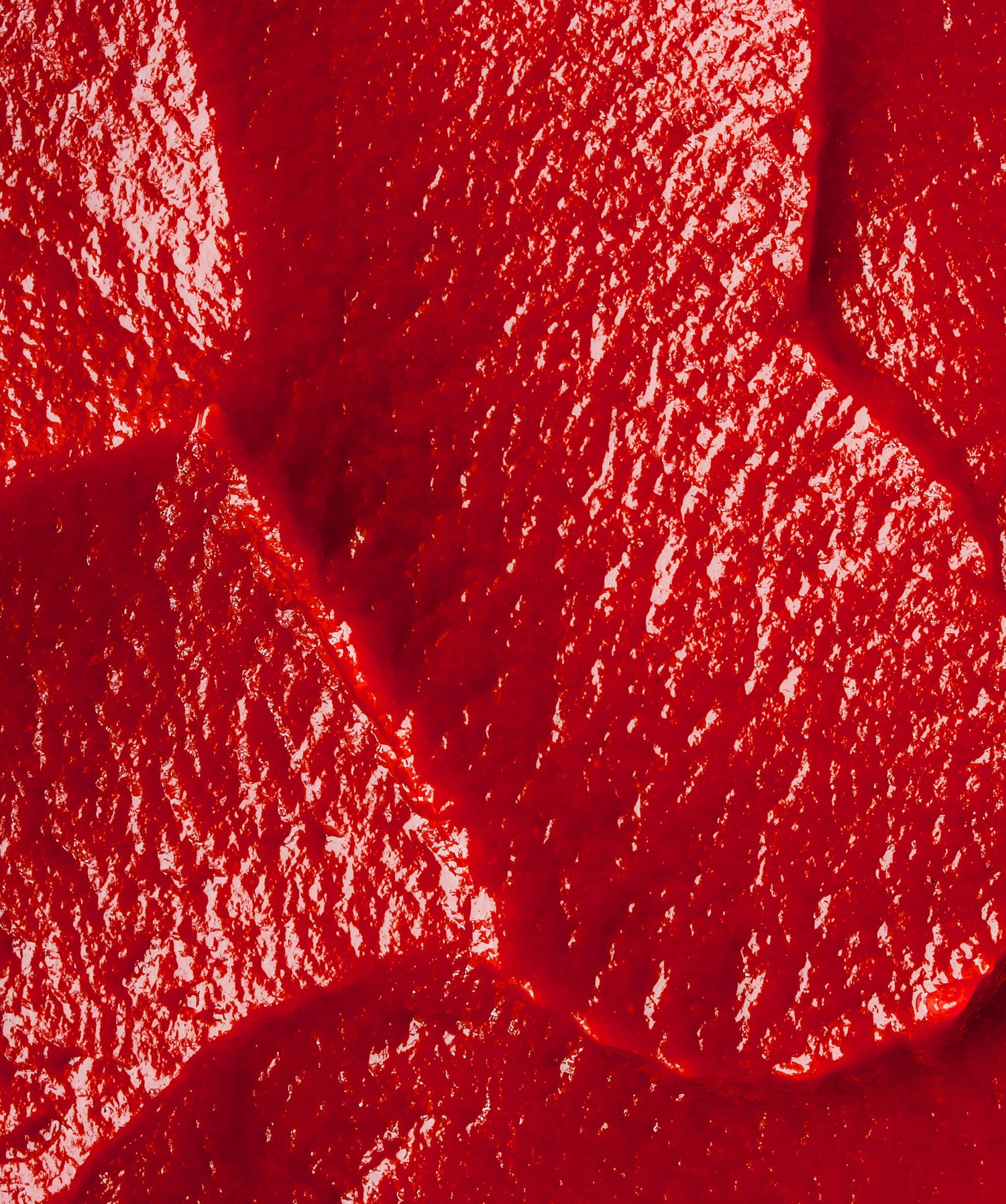
Lycopene: A Tomato-Derived Antioxidant
Lycopene is the red carotenoid pigment most abundant in cooked tomatoes and tomato products (such as purée or paste). Cooking breaks down the tomato’s cell walls, making lycopene far more available for absorption than in raw fruit.
Beyond giving tomatoes their colour, lycopene acts as a strong antioxidant and has been studied for its ability to reduce inflammation, stabilise blood vessels, and protect cells from oxidative stress. In human medicine, it’s being investigated for roles in cancer prevention, vascular health, and immune support.
In birds, while direct studies are limited, these same mechanisms suggest possible supportive benefits during recovery from infections like canker. By easing oxidative stress and helping to calm inflammation around lesions, lycopene may aid the healing process. It is not a cure, but incorporating small amounts of cooked tomato products into a varied diet could provide extra antioxidant support to help birds cope with systemic effects of disease.
Conclusion
Modern research is increasingly validating natural remedies for canker (avian trichomoniasis) in birds. Plant-based compounds—such as essential oils and herbal extracts—have shown real potential to fight Trichomonas gallinae by disrupting the parasite’s membranes or interfering with its metabolism. Many also offer added benefits like antioxidant and anti-inflammatory effects, with low toxicity when used correctly.
Pigeons, often treated preventively by fanciers, may benefit from alternatives like diluted thyme or oregano extracts in water during racing season. Chickens and other poultry, while less commonly affected, may also see gut health benefits from some of these supplements.
However, dosing and safety matter. Even natural substances can cause harm if misused. The options discussed here are supported by open-access, peer-reviewed research and show good safety profiles in birds.
We always recommend speaking with an avian vet—especially one familiar with integrative care—before introducing any natural treatments. With careful use, nature offers a promising toolkit of compounds like thymol, allicin, and tannins that can help manage and prevent canker while reducing reliance on conventional medications.
Avian Empire
THE GOOD STUFF - Oregano Thyme & Cinnamon Poultry Supplement - 150ml
Share
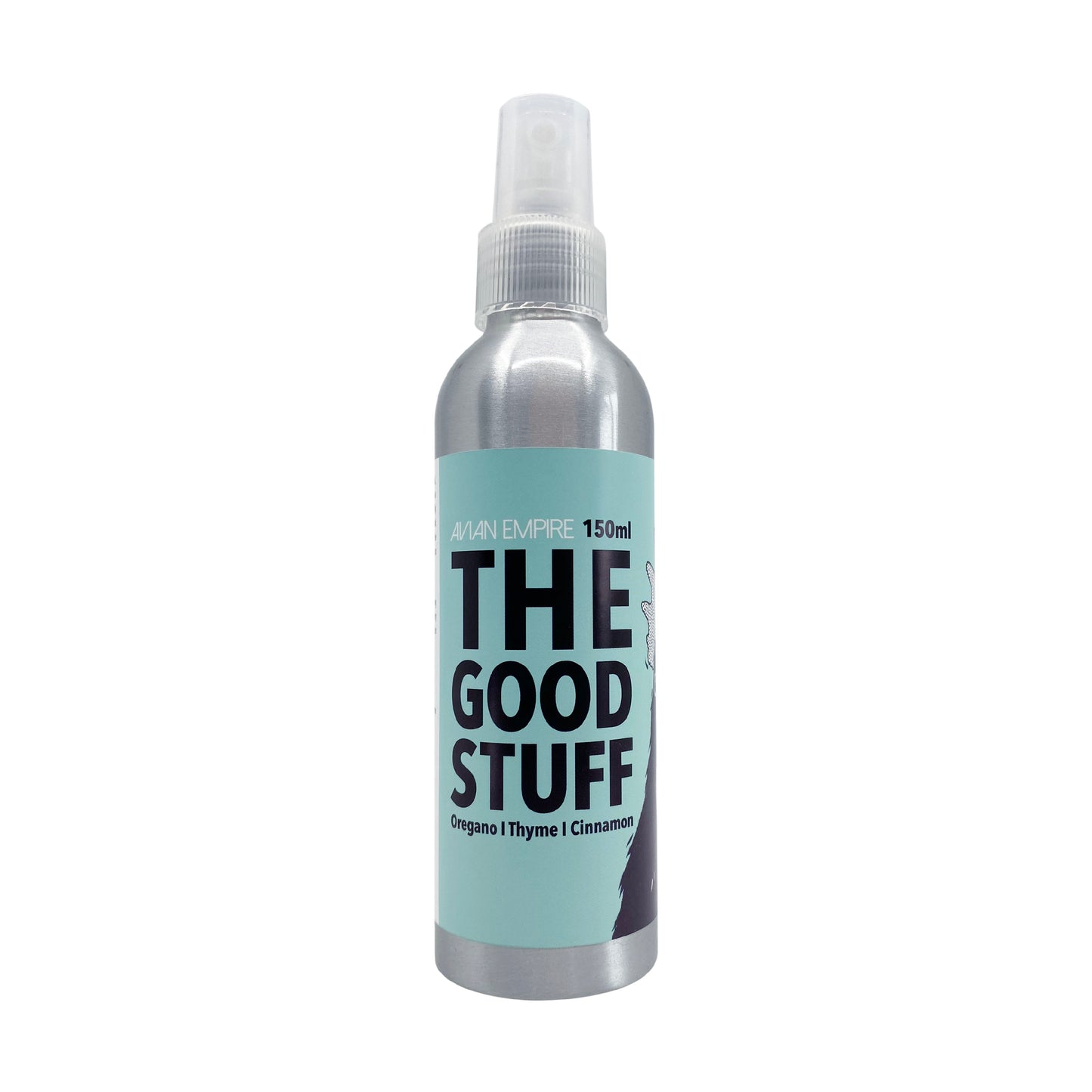
References
- Bailén, M., et al. (2022). Anti-Trichomonas gallinae activity of essential oils and main compounds from Lamiaceae and Asteraceae plants. Frontiers in Veterinary Science, 9:981763.
- Sadr, S., et al. (2022). Treatment of avian trichomoniasis by tannin-based herbal mixture (Artemisia annua, Quercus infectoria, and Allium sativum). Journal of World’s Poultry Science, 1(2): 32–39.
- Malekifard, F., et al. (2021). In vitro assessment of anti-Trichomonas effects of Zingiber officinale and Lavandula angustifolia extracts on T. gallinae. Veterinary Research Forum, 12(1): 95–100.
- Rahimi, B., et al. (2024). In vitro anti-Trichomonas gallinae effects of Ziziphus vulgaris and Camellia sinensis extracts. Veterinary Medicine and Science, 10(3): e1432.
- Saeed, B. I., Malekifard, F., & Yakhchali, M. (2025). Comparative in vitro assessment of oak (Quercus infectoria) and carob (Ceratonia siliqua) extracts as natural alternatives to metronidazole against T. gallinae. BMC Veterinary Research, 21:462.
- Khaki, A., et al. (2024). Comparative efficacy of eugenol, eugenol nanoemulsion and metronidazole against Trichomonas gallinae: An experimental study. Open Veterinary Journal, 14(10): 2618–2627.
- Abouhosseini Tabari, M., & Youssefi, M. R. (2018). In vitro and in vivo evaluations of Pelargonium roseum essential oil activity against Trichomonas gallinae. Avicenna Journal of Phytomedicine, 8(2): 136–142.


